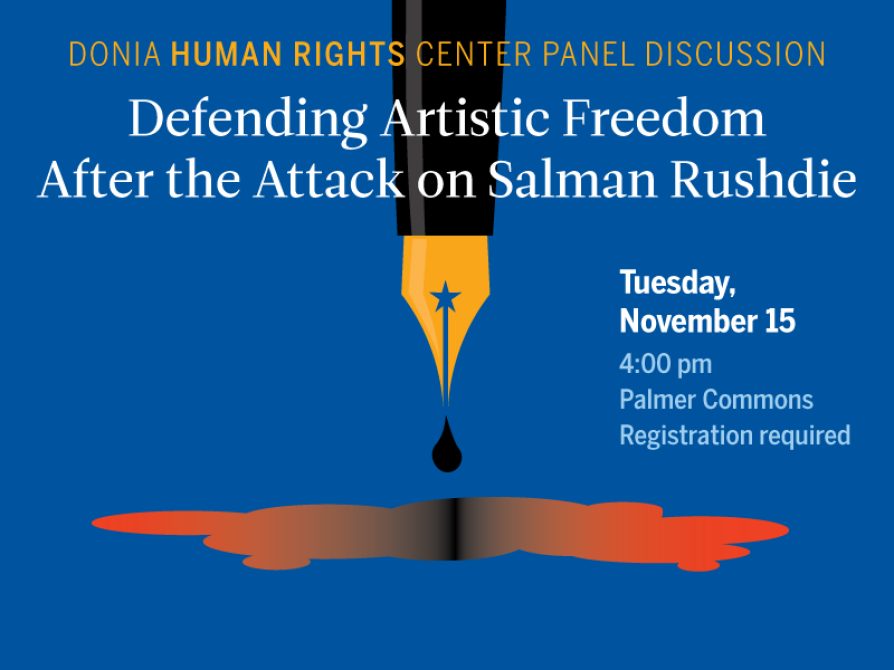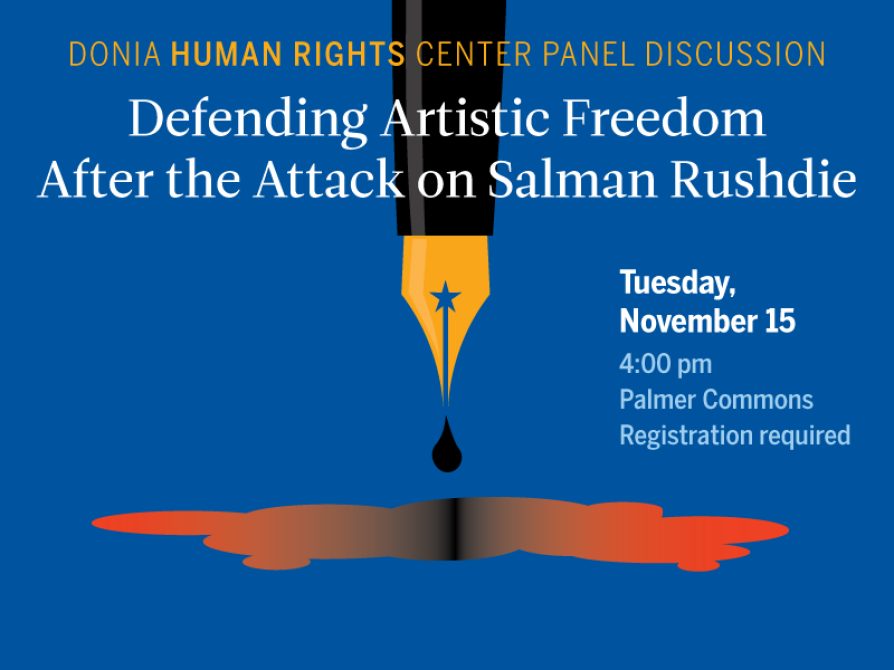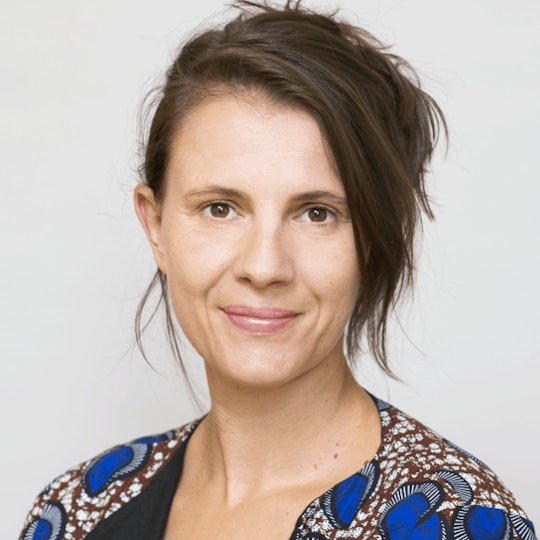Defending Artistic Freedom After the Attack on Salman Rushdie
by jtrebault | Nov 9, 2022

Defending Artistic Freedom After the Attack on Salman Rushdie
Tuesday, November 15, 2022
4:00 – 5:30 pm EST
University of Michigan Donia Human Rights Center
Forum Hall, Palmer Commons
100 Washtenaw Ave, Ann Arbor, MI 48109
This event is free and open to the public, but registration is required if you intend to participate via Zoom.
On August 12, acclaimed writer Salman Rushdie was to address a crowd at the Chautauqua Institution about safe havens for at-risk writers, when he was stabbed multiple times. While Mr. Rushdie thankfully survived, he experienced severe injuries, after facing years of threats since the 1989 fatwa against his book “The Satanic Verses” by Iran’s then-Supreme Leader Ayatollah Khomeini. What will be the impact of this brutal act of violence against a writer on efforts to defend the human right to freedom of artistic expression around the world? What kinds of threats are artists facing globally as they practice their crafts – practice essential to the cultural rights of all? What kind of self-censorship do these pressures foster, especially around controversial issues such as religion? What strategies can cultural rights defenders use to support artists like Salman Rushdie, and all the Rushdies around the world?
Salil Tripathi, Board member, PEN International, and former chair, PEN International’s Writers in Prison Committee
Ahmed Naji, Egyptian novelist
Julie Trébault, Director of the Artists at Risk Connection (ARC)
Karima Bennoune, Lewis M. Simes Professor of Law, Michigan Law School (Moderator)
Salil Tripathi was born in Bombay, India and lives in New York. He chaired PEN International’s Writers in Prison Committee from 2015 to 2021 and is now a member of its board. Between 2009 and 2013, he was on the board of English PEN, where he co-chaired English PEN’s Writers-at-Risk Committee (with novelist Kamila Shamsie). His honors include the Red Ink Award from the Mumbai Press Club in 2015 for human rights journalism and the third prize at the Bastiat Awards for Journalism in New York in 2011, among others. Tripathi has written several books on the topics of free expression, politics, and history. His most recent work is For In Your Tongue I Cannot Fit: Encounters with Prison, which he has co-edited with the artist Shilpa Gupta. Tripathi studied at the New Era School and Sydenham College in Bombay, and has an MBA Tuck School at Dartmouth College in the United States.
Ahmed Naji is an Egyptian novelist and author of four books, including The Use of Life (2014) and Rotten Evidence: Reading and Writing in Prison (2020). In early 2016, Naji was imprisoned on charges of “violating public modesty” and was sentenced following complaints about sexual content in his book The Use of Life. Naji spent 10 months in prison until May 2017 when he was conditionally released, though subject to a travel ban pending appeal of his case. A year later, the court overturned his original sentence, replaced prison time with a fine, and lifted Naji’s travel restrictions. In July 2018, he fled Egypt and now lives in the United States. Naji has nevertheless continued to write: He was appointed a City of Asylum fellow at the Beverly Rogers, Carol C. Harter Black Mountain Institute in 2019). Naji is the 2016 PEN/Barbey Freedom to Write honoree.
Julie Trébault is the director of the Artists at Risk Connection. Prior to joining PEN America, she was the Director of Public Programs at the Museum of the City of New York and the Center for Architecture. Prior to moving to New York, she worked at the National Museum of Ethnology in the Netherlands, where she established a network of 116 museums. From 2004 to 2007, she was responsible for higher education and academic events at the Musée du quai Branly (Paris).
Karima Bennoune grew up in Algeria and the United States. She was UN Special Rapporteur in the field of cultural rights from October 2015 to October 2021. Bennoune is Professor of Law and Martin Luther King, Jr. Hall Research Scholar at the University of California-Davis School of Law where she teaches courses on human rights and international law. She is currently a Visiting Professor at the University of Michigan Law School. Her research and writing, including on cultural rights issues, has been widely published in leading journals and periodicals. She has received numerous awards, including the Dayton Literary Peace Prize (2014) for her recent book, Your Fatwa Does Not Apply Here: Untold Stories from the Fight Against Muslim Fundamentalism. Bennoune has worked in the field of human rights for more than 20 years, including with governments and non-governmental organizations, and has carried out field missions, trial observation, election observation and research in many regions of the world.










